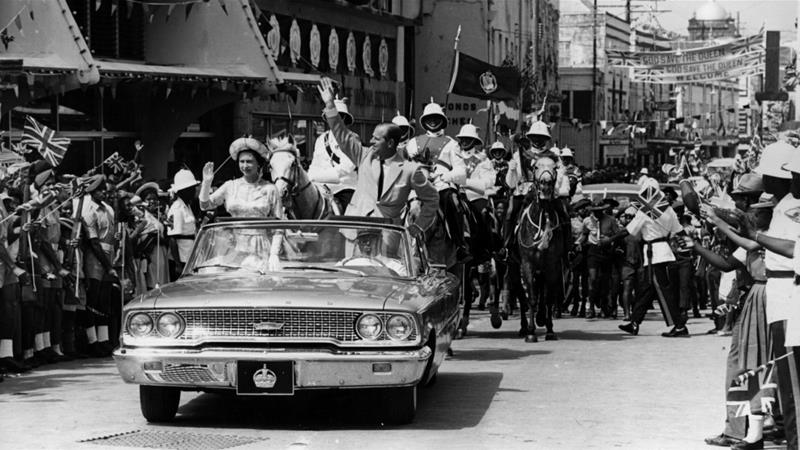The Caribbean island of Barbados will become a republic and has announced its plan to remove Queen Elizabeth II as Head of State. Here’s a list of the countries which still recognise the Queen as its head.
The Caribbean island of Barbados has announced its intention to ditch Queen Elizabeth II as its Head of State by the end of next year and become a republic. The removal of the British monarchy is due to coincide with the 55th anniversary of the Barbadian independence, which was to take place in November 2021.
The Caribbean island is a former British colony that gained independence in 1966. But the independent island country continued to maintain its formal link with the British monarchy. Barbados is one among the 16 commonwealth realms and soon in 2021 going to make history by becoming the first country in almost three decades to disconnect its ties with the British royal family and become a republic.
History of Barbados
Barbados is an island country located in the south-eastern Caribbean Sea. Barbados is not actually a part of the nearby archipelago of the Lesser Antilles, though it is usually grouped with it. The geographic position of the island country has profoundly influenced the island’s history and its culture. The country was first occupied by the British in 1627 and remained a British colony until internal autonomy was granted to it in 1961.
Finally, the island attained independence in 1966. And, decided to continue its ties with the Britain monarch represented in Barbados.
Which countries recognise Queen Elizabeth as head of state?
In addition to Barbados and the United Kingdom, Queen Elizabeth II currently serves as the Head of State of Antigua and Barbuda, Australia, Bahamas, Belize, Canada, Grenada, Jamaica, New Zealand, Papua New Guinea, Saint Kitts and Nevis, Saint Lucia, Saint Vincent and the Grenadines, Solomon Islands, and Tuvalu.
As of 2020, these 16 nations come under Commonwealth Realms. The Queen-led nations, in which the Queen acts as the Head of State are known as Commonwealth Realms. These are distinct from the Commonwealth of Nations, as it is an inter-governmental organisation of 54 independent member states. It is important to note that these 16 nations that come under Commonwealth Realms, are all part of the Commonwealth of Nations.
The Queen’s role as Head of State is largely ceremonial, and she is represented in each country by a governor-general who carries out the Queen’s day-to-day duties.
Mauritius was the last country to remove the Queen as the Head of the State in 1992. The island nation has since been governed by an elected president as head of state and a prime minister as head of government.
There are other countries as well who have had removed the Queen as their Head of State in 1970s. The countries include: Guyana took the step in 1970, less than four years after gaining independence from Britain. Trinidad and Tobago followed suit in 1976 and Dominica in 1978.
Barbados’ announcement could pave the way for other Commonwealth Realm nations to abnegate the monarchy. Australia has had several high-profile debates on the issue. The country voted to keep the Queen as the Head of State in a 1999 referendum, but more recent polling results show that replacing the Queen with an Australian Head of State may now have majority support. Jamaica since 2016, is trying to remove the monarchy, but the country’s parliament is making doing so difficult as a constitutional amendment to remove the Queen as the nation’s monarch is required.
What powers does the Queen have as the Head of State?
Each country led by the Queen as the Head of State functions independently, with its own rules and laws. As Head of State, the Queen has no real power, although she is recognised as the ceremonial ruler, like in the UK. The governor-general that works on behalf of the Queen is usually elected or chosen by the country’s parliament, cabinet or prime minister and all formally appointed by the Queen.
Almost all governors-general are knighted by the Queen as an accepted norm and accorded the title Dame when female and Sir when male. Canada and Australia are the exceptions to this.
Why Barbados wants to become a Republic?
Barbados Governor General, Sandra Mason, while announcing the country’s decision to remove the Queen as the Head of State said, “The time has come to fully leave our colonial past behind,” in a speech on behalf of the Prime Minister Mia Mottley,
She also stated, “Barbadians want a Barbadian Head of State. This is the ultimate statement of confidence in who we are and what we are capable of achieving. Hence, Barbados will take the next logical step toward full sovereignty and become a Republic by the time we celebrate our 55th Anniversary of Independence.”
The announcement of Barbados does not come as a surprise to Britain, as in 1998, a constitutional review commission in the country recommended that Barbados should become a republic. Even the first Prime Minister of Barbados, Errol Barrow, said that the country should not ‘loiter on colonial premises.’
Both Buckingham Palace and the U.K. Foreign and Commonwealth Office reacted to the issue and considered it as a matter for the people of Barbados.

